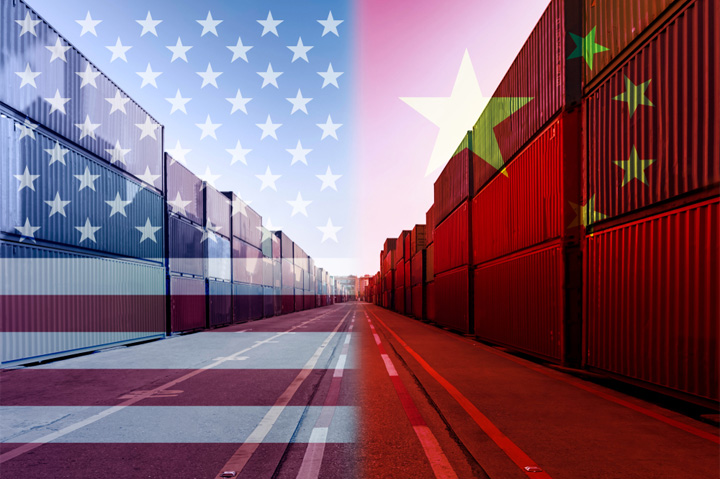News May 29, 2025
ANTE Act Could Expand Application of Section 301 Tariffs
The act intends to prevent China-backed exporters from bypassing the levies through third-country manufacturing but could, if enacted, further fuel importing cost increases.
Key Takeaways
• ANTE Act’s Purpose: The bill proposes to more broadly apply Section 301 tariffs to prevent China-backed firms from bypassing levies through third-country manufacturing.
• Potential Impact: The Axing Nonmarket Tariff Evasion Act could increase the cost of importing some products, affecting various industries, including possibly the promo space. Some promo importers favor the bill, saying it levels the playing field.
• Legislative Process: The bill has only just been introduced. It must pass Congress and be signed by President Trump to become law.
Congresspeople have introduced a new bill that would empower federal authorities to apply Section 301 tariffs more broadly in an effort that proponents say is primarily aimed at helping to prevent China-based entities from exploiting loopholes for evading the levies.
If enacted, the Axing Nonmarket Tariff Evasion (ANTE) Act could lead to wider spread application of the Section 301 tariffs on imported goods previously not affected by them, a move that could increase importing costs on the items and thereby generate further inflationary pressure on products newly subject to the levies, including possibly promotional products. Even so, some promo importers favor the legislation, arguing it would help nix an unfair global trade practice by some China-backed entities.

The ANTE Act would empower the United States Trade Representative (USTR) to apply the 301 tariffs to entities owned, controlled or subject to the jurisdiction of a “nonmarket economy country.” In its most prominent intended effect, ANTE enables USTR to investigate if a China-based-or-backed entity is establishing or has established a manufacturing operation in a country outside of China that’s not subject to Section 301 tariffs to avoid paying those import levies.
If authorities determine the entity has done so, then USTR would have the ability to apply Section 301 tariffs on the China-backed entity’s planned or existing operation in the third country. Put another way, if a Beijing-controlled manufacturer sets up shop in Mexico to make drinkware to evade 301 tariffs, that entity’s products coming from that Mexican factory could now be subject to Section 301 tariffs under ANTE, analysts said.
“The ANTE Act will stop highly subsidized, state-owned businesses from using third countries as backdoors to evade President Trump’s tariffs.” Rep. Jodey Arrington (R-TX)
“Communist China shouldn’t be able to dodge U.S. tariffs by slapping a ‘Made in Mexico’ label on their products,” said Sen. Jim Banks (R-IN), who introduced the bill in the Senate on May 22. “My bill closes loopholes and stops the CCP from cheating American workers and manufacturers.”
House Budget Chairman Jodey Arrington (R-TX) introduced ANTE in the House of Representatives on May 23. “The ANTE Act will stop highly subsidized, state-owned businesses from using third countries as backdoors to evade President Trump’s tariffs and help ensure a level playing field for American producers and manufacturers,” Arrington said.
“The reality is: if it’s ‘Made in Mexico’ but bankrolled by Beijing, it’s not fair trade — it’s a loophole. This legislation finally gives the U.S. the tools to hold those players accountable.” Randy Carr, World Emblem (asi/98264)
The legislation defines an entity that can be investigated as one that is owned, controlled and/or subject to the jurisdiction of, or operated by, a nonmarket economy country, such as China. It includes any entity that on any date during the previous 12-month period has not less than 25% of its equity interests held directly or indirectly by one or more entities organized under the laws of a nonmarket economy country.
A "nonmarket economy" refers to a country where the government exerts significant control over economic activities, often through state ownership or regulation, and where prices and resource allocation are not primarily determined by market forces.
The bill still needs to pass through Congress and be signed by President Donald Trump before it can become law. It has supporters in promo.
“The ANTE Act is long overdue,” Randy Carr, CEO of Counselor Top 40 supplier World Emblem (asi/98264), told ASI Media. “China’s backdoor strategy of using Mexico and other third countries to dodge tariffs is a direct threat to fair competition and American manufacturing. We’ve seen it firsthand, and deal with it daily.”
World Emblem has invested heavily in North American operations — including a facility in Mexico — to ensure speed, quality and compliance with U.S. trade policies.
“What we’re not going to do is look the other way while state-subsidized competitors game the system and flood the market with artificially cheap goods,” said Carr. “The reality is: if it’s ‘Made in Mexico’ but bankrolled by Beijing, it’s not fair trade — it’s a loophole. This legislation finally gives the U.S. the tools to hold those players accountable.”
Section 301 tariffs are trade measures the United States imposed under Section 301 of the Trade Act of 1974. Most notably, President Trump used Section 301 to enact tariffs on Chinese goods during his first term, starting in 2018.
Left in place by President Joe Biden, these tariffs affect hundreds of billions of dollars in trade and have led to ongoing tensions between the U.S. and China. They can be modified or removed based on negotiations or changes in trade behavior. They’re in addition to subsequent tariffs that Trump placed on China in 2025.
